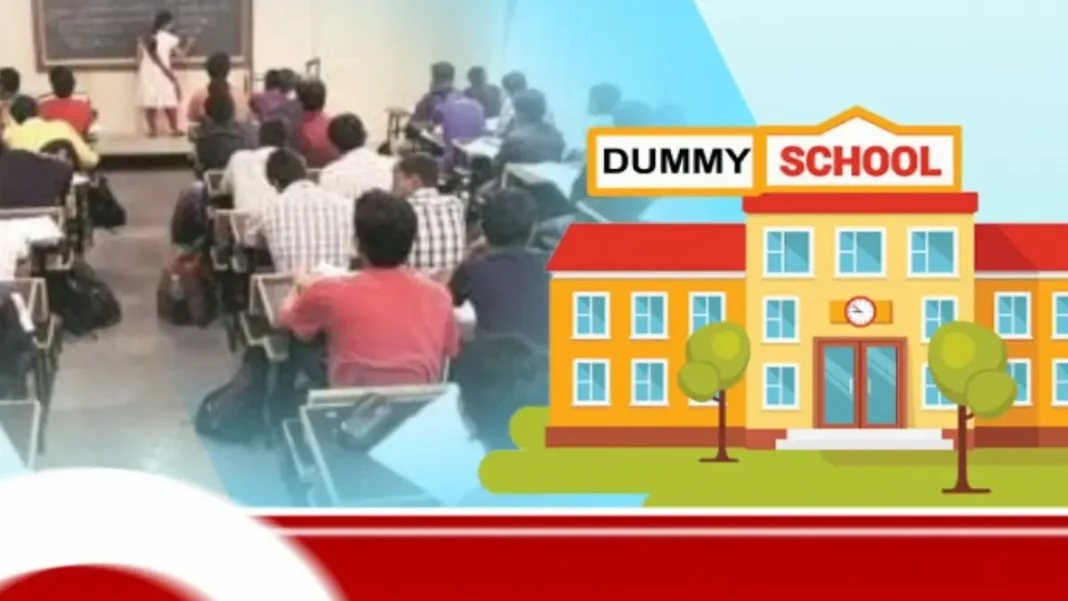The Central Board of Secondary Education (CBSE) has announced strict measures against students enrolled in dummy schools, preventing them from appearing for board exams. This move aims to curb the rising trend of students opting for such schools to bypass regular attendance while focusing on competitive exam preparations.
In This Article:
What Are Dummy Schools?
Dummy schools are institutions where students are officially enrolled but do not attend regular classes. Instead, they dedicate their time to coaching centers that prepare them for entrance exams like JEE and NEET. While this practice has been prevalent for years, CBSE has taken a firm stance against it, citing its adverse impact on holistic education.
CBSE’s New Policy: A Game-Changer
CBSE has made it clear that students found enrolled in dummy schools will not be allowed to sit for the board examinations. Instead, they will have to appear for tests conducted by the National Institute of Open Schooling (NIOS). Schools caught facilitating such enrollments will face strict penalties, including withdrawal of affiliation.
Why Is CBSE Taking This Step?
The decision stems from multiple concerns regarding the impact of dummy schooling on students and the education system:
- Lack of Holistic Development – Schooling is not just about academics; it includes co-curricular activities, moral education, and interpersonal skills. Dummy students miss out on these crucial aspects.
- Compromised Academic Integrity – The essence of school education lies in regular assessments, discipline, and participation in academic activities. Dummy schooling undermines this system.
- Disparity in Education System – Many students from economically weaker backgrounds cannot afford dummy schooling setups, leading to an unfair advantage for those who can.
- Mental and Social Impact – Staying away from a structured school environment may lead to social isolation, anxiety, and stress among students.
Impact on Students and Parents
For students currently enrolled in dummy schools, this policy shift brings uncertainty. Many have invested significant time and money in coaching institutes. However, CBSE’s emphasis on regular schooling now mandates a balanced approach to both board exams and entrance preparations.
Parents need to rethink their children’s educational paths. Enrolling in recognized schools that ensure proper attendance is now essential. They must also focus on time management strategies to balance school education and competitive exam preparations effectively.
Alternatives for Students Previously in Dummy Schools
For students affected by this policy, there are a few possible alternatives:
- Regular Schools with Integrated Coaching: Some schools now offer integrated programs that combine board syllabus learning with entrance coaching.
- Evening or Weekend Coaching: Instead of skipping school entirely, students can opt for coaching classes after school hours.
- Self-Study with Online Resources: With the rise of digital education, students can use online platforms for self-paced learning without compromising school attendance.
The Future of Competitive Exam Preparation
This move by CBSE could reshape how students prepare for competitive exams. Instead of entirely bypassing school education, students might now opt for schools that offer structured programs. Coaching institutes might also evolve to accommodate students attending regular school, ensuring a more balanced learning approach.
CBSE’s crackdown on dummy schools is a crucial step toward maintaining academic integrity and ensuring holistic education. While this decision may initially seem challenging for students focused on competitive exams, it encourages a more balanced and structured approach to learning. Parents and students must adapt to these changes by choosing institutions that align with the new guidelines while supporting overall academic growth.
By – Jyothi



